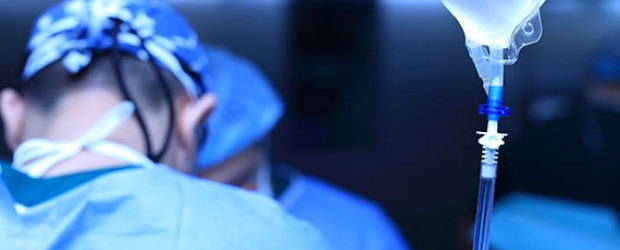The Surgical “Black Box”
October 03, 2015

In a National Law Review article published on July 29, 2015, Philadelphia-based personal injury attorney, Michael C. Ksiazek, analyzed the increasingly likely advent of recording surgical procedures by various means—and the effects such monitoring might have on medical practice — and malpractice. Several recording methods are discussed, including a surgical recording device similar to the airline “black box.” The article also takes up audio and video recording of surgeries. For some, this detailed data collection is welcomed, while others are wary.
Ksiazek explains that, thus far, black box type recordings from the OR are not widespread, but there is, unsurprisingly, significant interest from the medical community, legislators and the public. Referring to black box recordings of laparoscopic surgeries that have been made, using equipment designed at the University of Toronto, the attorney explores the clarity such surgical data collection might provide, including:
- Assisting insurance investigations: The ability to refer to data collected during surgery, detailing the surgeon’s actions, could provide a valuable window for insurance investigators to look through, when malpractice is suspected.
- Serving as evidence: The black box data, along with audio and video recordings, could be useful for or proving potential court cases. He notes that differing analyses of the same recorded material are still to be expected.
- Training and quality improvement: The detailed surgical records and data (collected by these flight data recorder-like devices) might allow hospitals to study surgical errors with an eye toward preventing the same mistakes from being repeated in future surgeries.
- Increase public confidence: Recordings might serve to increase public trust of the medical community and hospitals since transparency about what actually occurs during surgery would essentially be enforced.
Societal Pressures for Increased Medical Scrutiny
The call to record surgical procedures was partly spurred by recent medical malpractice cases that have prompted legislators, for example in NY and Wisconsin, to introduce bills to allow or require surgical data recordings. One bill would allow patients to request in advance that audio and video records be made of future surgical procures they might undergo. Proponents feel that recordings could help to bring closure to families who long to know “what really happened” to a loved one, in cases where death or injury occurred during an operation. In essence, surgical recordings of the surgeon’s actions in the operating room would assure accuracy of the events by providing objective evidence of what occurred. Identification and reduction of surgical error will result in improved patient outcomes as well as reduced healthcare costs, due to technology capable of such advanced data collection as a surgical “black box”.
With some doctors, medical associations and hospitals wary of (and opposed to) high-tech surgical recording, black boxes (and cctv or closed-circuit television) won’t appear in the OR overnight, but are likely to become commonplace fairly soon. It’s clear: the transparency phenomenon of this millennium has reached the medical realm.
For more information on liability insurance coverage, contact MedMal Direct today!